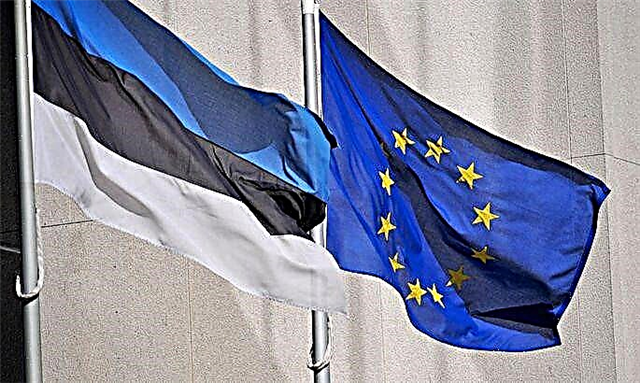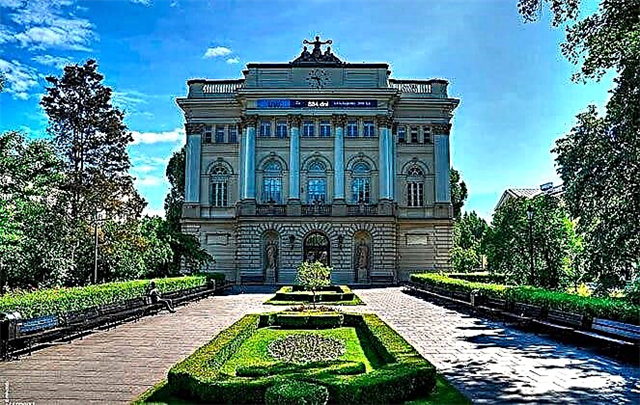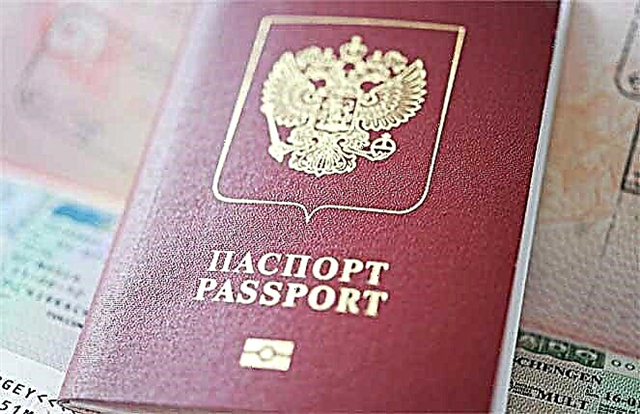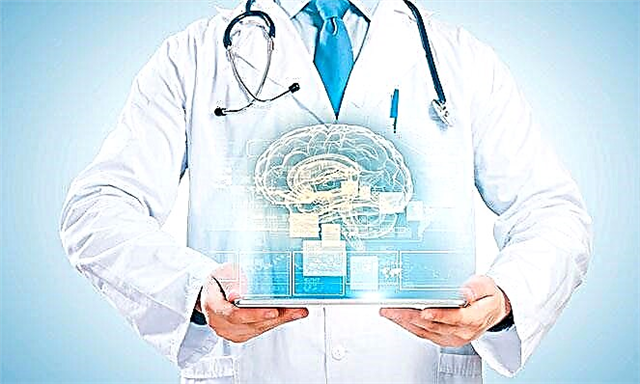Tens of thousands of medical tourists visit Germany every year, who come here to receive highly qualified medical care. The incessant flow of patients from abroad to Germany is due to the fact that German doctors are not afraid to take the most hopeless patients and put them on their feet. Neurosurgery in Germany is research centers, neurosurgical clinics and institutes equipped with the most modern equipment, professional doctors who use unique technologies in diagnosis and treatment.

Medicine in Germany: distinctive features
The German healthcare system functions as a well-oiled mechanism and has a number of features.
- Firstly, it is the availability of medical services for any German citizen, regardless of his material or social status.
- Secondly, a complex financing system (more than 300 billion euros annually). It includes the allocation of funds not only from the state, but also from each federal state.
The availability of medicine is ensured by the principle of solidarity: all German citizens are required to have insurance under the state program (insurance premiums are paid jointly by the employee and employer) or in private insurance companies.
Medicine in Germany is distinguished by such features as:
- technical equipment, which allows to achieve high accuracy in diagnostics, to carry out unique operations and to apply the latest and most effective means of treatment;
- high level and quality of offered medical services, professionalism of doctors;
- electronic medical records of patients;
- the possibility of a patient choosing a hospital for treatment;
- free treatment for children and the elderly.
German medicine occupies one of the leading places in the world, especially in such science-intensive areas as neurosurgery.
Neurosurgical clinics in Germany: the main directions in treatment and diagnosis
The success of holistic and complex neurosurgical treatment in Germany is ensured by conducting a diagnostic search in specialized clinics, choosing the optimal treatment course and its clear implementation, as well as a complex for patient rehabilitation. German neurosurgeons are actively using the achievements of neurophysiology, radiology, radiology, seeking to reduce invasiveness and achieve maximum efficiency.
The neurosurgery industry is not only one of the most developed healthcare areas in Germany, but also a leader in European medicine. This is evidenced by a large number of highly specialized clinics of therapeutic neurosurgical directions:
- neuro-oncological - minimally invasive treatment of diseases such as brain cancer (gliomas, neuromas, neuroblastomas, astrocytomas, neurocytomas, etc.), uterine cancer;
- neurotraumatology - assistance with brain bruises, hematomas, open and closed craniocerebral injuries, spinal injuries with contusion or rupture of the spinal cord, and others;
- vascular neurosurgery - for disorders of cerebral blood supply, blood circulation: treatment of aneurysms, vascular atherosclerosis, assistance in ischemic, hemorrhagic strokes;
- pediatric neurosurgery - neurosurgical treatment of diseases of children, including hydrocephalus, epilepsy.
Technologies and diagnostic methods in German neurosurgery
Neurosurgical treatment of a patient will be effective only if the disease is accurately diagnosed. In neurosurgery in Germany, along with traditional analyzes, high-tech diagnostic methods are used. Among them, a special place is occupied by various types of tomography:
- positron emission (especially effective for epilepsy, strokes);
- computer rent (primarily for diseases of the brain);
- magnetic resonance imaging (safe scanning of the brain with a magnetic field).
To diagnose diseases of the spine, myelography (contrast X-ray) is used, to determine intracranial pressure - lumbar puncture. The condition of the vessels can be checked using ultrasound Doppler scanning, cerebral angiography.
German clinics use such methods of examining the brain and spinal cord as electroencephalography, echoencephalography, electromyography.
The presence of a special technique allows the use of stereotaxic biopsy to establish the type of tumor and the degree of its malignancy.
Methods for the treatment of neurosurgical diseases in clinics in Germany
With timely referral for specialized help in German clinics, it is possible to cure almost any neurological disease, including Parkinson's disease and epilepsy, cranial and spinal injuries of varying degrees of complexity, and oncological diseases.
The components of the success of German clinics are highly qualified medical staff, modern equipment and the use of advanced minimally invasive and non-invasive treatment methods.
Among the most effective:
- the use of a cyber knife, gamma knife;
- microsurgery, the use of endoscopic methods;
- electrophysiological monitoring;
- neuronavigation (computer processing of diagnostic results);
- targeted therapy;
- proton and ion therapy;
- functional stereotaxy
- conservative and surgical treatment of hydrocephalus, etc.
Thanks to modern technologies in neurosurgical clinics in Germany, the whole range of operations of any complexity on the brain and spinal cord, nerves and vessels is available.

Leading neurosurgical clinics in Germany
When it comes to human life and health, it is natural to want to find the best neurosurgical clinic, to trust the most experienced and knowledgeable specialist. The German news magazine Focus, which for more than 20 years has regularly published ratings of the best medical institutions in Germany, lists of the most qualified doctors, including neurosurgeons, can provide some help when searching on your own.
It should be borne in mind that similar ratings are made in Germany based on the results of surveys of German citizens, some criteria may not be relevant for foreigners (for example, proximity to the place of residence).
In such a situation, specialized companies that provide services for finding clinics that are most suitable for treating a specific disease (for example, oncology or the nervous system), selecting the necessary specialists, and helping with organizing a trip for treatment can provide more effective assistance: for this, the patient can provide data their diagnostic examination, the conclusions of the attending physicians and other information).
Naturally, such intermediary services are paid additionally (400-500 euros), but there is a higher probability that the patient will be able to find the most desired result.
Patients can go to neurosurgical clinics on their own - in almost every large medical institution in Germany there are special departments for working with foreign patients.
When searching on your own, remember:
- the best clinic for treatment does not necessarily have to be located in Munich, Hamburg or Berlin. Excellent specialists can also be found in small university hospitals in Germany;
- given the high level of medical equipment (equipment in clinics is updated every 5-6 years), it is better to focus on finding the right specialist;
- the price and quality of the treatment is not affected, whether the clinic where the treatment is taking place will be public or private;
- for the treatment of the most rare and serious diseases, it is more advisable to contact university clinics.
The ratings of the best clinics and neurosurgeon specialists on various sites, as a rule, do not exactly coincide, but there is a pattern: all the medical institutions mentioned in them, regardless of their place in one or another rating, will be among the best clinics Germany, in the top 20 or top 100.
Among the permanent leaders are such large clinics as the Berlin-Hospital Charite, the Ludwig Maximilian Clinic in Munich (which includes the European CyberKnife Center Munich).
From specialized neurosurgical clinics at the top of the ratings are more often:
- Clinic of the Goethe University in Frankfurt am Main (Prof. Volker Seifert);
- Klinik Giessen and Marburg (Prof. Ederhard Uhl and Markus Reinges),
- Clinic of the University of Heidelberg (Prof. Andreas Unterberg),
- State Clinic Karlsruhe.
More than three thousand of the most complex neurosurgical operations are performed there annually.

The cost of diagnostics and neurosurgical treatment
Several factors affect the cost of treatment:
- diagnostic examination;
- main diagnosis of the disease, presence / absence of concomitant diseases;
- the severity of the disease;
- the age of the patient;
- the treatment strategy used;
- doctor status (professor, senior doctor);
- the duration of the course of treatment;
- the degree of comfort in the ward.
Each clinic calculates individually for each patient at the existing federal rates and issues an invoice.
Estimated prices for some types of diagnostics and treatment
| Diagnostics | Cost (EUR) |
|---|---|
| Check-up | 1470 |
| Breast MRI | 1000 |
| MRI of the heart | 900 |
| Neurosurgical outpatient diagnostics | 500 - 700 |
| CT scan of the coronary arteries | 305 |
| Neurological examination | 200 |
Duration and cost of treatment
| Operation | treatment (days) | Cost (EUR) |
|---|---|---|
| Surgical removal of adenoma of the pituitary gland of the brain | 7 | 21 000 - 31 000 |
| Gamma Knife in the Treatment of Brain Tumors | 5 | 12 000 - 25 000 |
| Removal of a brain tumor | 20 | 30 000 - 35 000 |
| Spinal hernia resection (endoscopy) | 5 | 11 000 - 12500 |
| Endoprosthetics of the m / n disc | 7 | 15000 |
| Treatment of m / n hernia with a laser | outpatient | 4000 |
The cost of diagnostics, as a rule, is up to 15-20% of the amount of neurosurgical treatment. Outpatient care is always cheaper.
The price of treatment also depends on the federal state: treatment of a brain tumor in Munich will cost 1500-2000 euros more than a similar operation in Dresden. In addition to the amount for treatment, foreigners need to provide for the costs associated with visa processing, flights, translation of medical documentation.
A trip to Germany for treatment: what is needed for this
To travel to Germany for treatment, you must first of all (independently or through an intermediary company) contact the clinic, provide your medical documentation - the diagnosis of the attending physician, referral for research.
After a preliminary analysis of the situation by German doctors, the clinic calculates a preliminary cost estimate, the duration of treatment, after which it is necessary to transfer part of the money (deposit) to the clinic's account.
After receiving an agreement on the provision of treatment, you should start applying for an entry visa - for a trip for treatment, a Schengen visa C is usually issued, and the purchase of travel tickets.
For more information on how to obtain a permit to enter Germany for a medical and diagnostic course, see the article "Visa for treatment in Germany".
The need for postoperative rehabilitation
After the completion of the treatment course, the connection between the patient and the attending physician does not stop. The success of treatment will largely depend on the rehabilitation program, which is individually developed by the attending physician.
Sanatoriums and resorts in Germany provide patients with a range of therapeutic measures after surgery: physiotherapy, massage, acupuncture. Specially selected rehabilitation technologies allow, depending on the severity of the illness, to fully or partially restore the lost functions: to walk independently, to serve oneself, to play sports.
Summing up
Neurosurgery in Germany rightfully occupies a leading position. German clinics provide foreign patients with a full range of medical services for diagnosis, treatment and rehabilitation after surgery.
High efficiency of treatment, modern technologies and techniques, minimally invasiveness and painlessness - all this attracts thousands of medical tourists from abroad to Germany. Prices for medical services do not differ much from prices in Russian private clinics, despite the fact that the quality of treatment and living conditions are incomparable.











